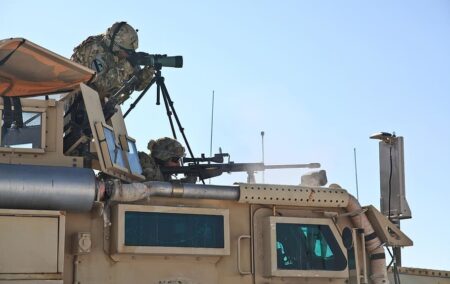The lockdown meant to combat the spread of the COVID 19 virus has handed a great deal of power to the country’s security apparatus. This brings with it troubling implications for South Africa’s future economic prospects.
This is the view of Dr Greg Mills and Ray Hartley of the Brenthurst Foundation, a Johannesburg-based think tank which was established in 2003 by the Oppenheimer family.
In an analysis published on the Daily Maverick website, they state that South Africa has reached a point of crisis and that a strategy is urgently needed to preserve as much economic activity as possible and to set the scene for a post-pandemic recovery (although they acknowledge that the damage will be serious).
The authors envisage two ‘offramps’, one of which involves an increasingly statist orientation, the other a strategy with private investment at its core.
The COVID 19 crisis has seen a shift to the former, in the form of the influence of the security forces on maintaining the lockdown and on the direction of policy.
They write: ‘The securocrats have never had it so good. Talk of wars and battles, de rigueur among the policy set in government, gives them a sense of institutional purpose and the space to flex their camouflage pecs. Allowing this has been a shockingly bad move, the long-term consequences of which, like that of Covid-19, are grave and uncertain. …
It’s not only in the township frontlines that the securocrats reign, but also evidently in the policy decisions of the government, including on which economic sectors should be open, and closed, and whether they will raise the threat of coronavirus transmission. They are no better epidemiologists, surely, than they are public order policemen, and as the latter they are evidently terrible: exponents of kragdadigheid of the sort last meted out by the apartheid state, if the reporting coming out of the townships is accurate.’
This has exposed what appears to be a strongly authoritarian impulse with some in government.
The authors argue that a better choice would be to adopt an approach more sensitive to the needs of the country’s people, to keep as much of the economy going as possible and to avoid the militarisation of the lockdown.
In the future, the increased influence of the security services in policy matters is likely to bode poorly for economic reform.

